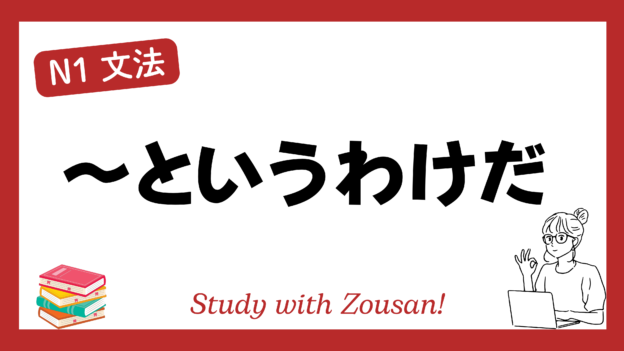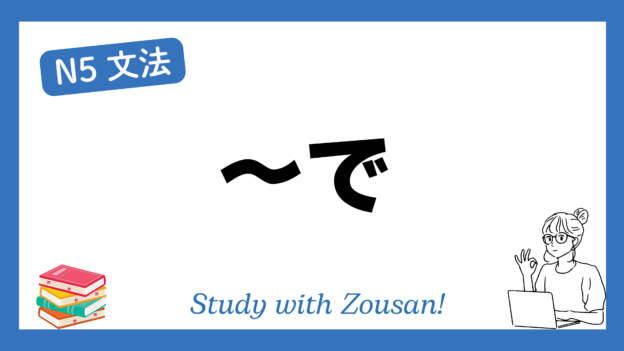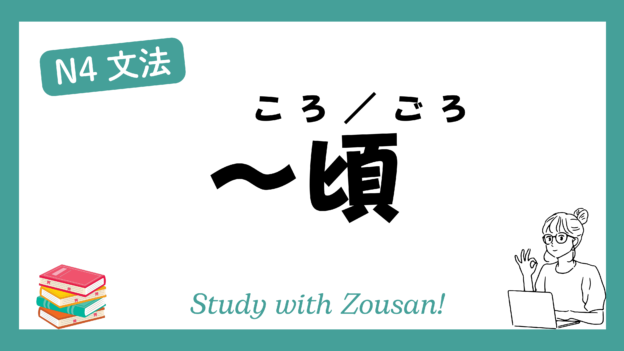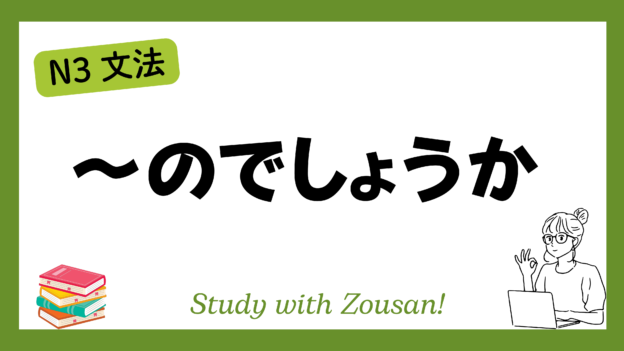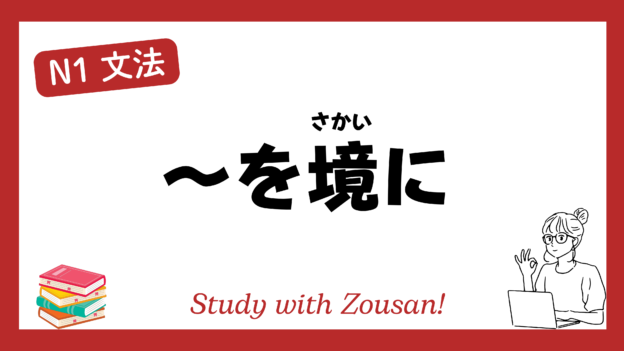N1文法:~というわけだ
Meaning: “That means…”, “In other words…”, “So…”
This structure is used to explain or interpret a specific conclusion, result, or reason based on what has been said previously. It helps the speaker to conclude or summarize a situation, often to clarify meaning or logic.
※Note: This structure is commonly used when the speaker wants to express that something is a natural consequence or an inevitable result of previous factors.
Structure:
| Phrase + | というわけだ というわけです |
Example:
-
-
-
🌟 彼は忙しくて来られないというわけだ。
(かれ は いそがしくて こられない という わけ だ。)
That means he’s busy and can’t come. -
🌟 明日は休みだというわけですね。
(あした は やすみ だ という わけ ですね。)
So, that means tomorrow is a day off, right? -
🌟 彼女は日本に住んでいるから、日本語が上手だというわけだ。
(かのじょ は にほん に すんでいる から、にほんご が じょうず だ という わけ だ。)
That means she’s good at Japanese because she lives in Japan. -
🌟 電車が止まったから、遅れたというわけです。
(でんしゃ が とまった から、おくれた という わけ です。)
So, the train stopped, and that’s why I was late. -
🌟 彼が責任者というわけだね。
(かれ が せきにんしゃ という わけ だ ね。)
So, that means he’s the person in charge. -
🌟 その値段なら買うしかないというわけだ。
(その ねだん なら かう しか ない という わけ だ。)
That means I have no choice but to buy it at that price. -
🌟 雨が降っているから、試合が中止になったというわけだ。
(あめ が ふっている から、しあい が ちゅうし に なった という わけ だ。)
So, the match was canceled because it’s raining. -
🌟 彼女は病気だったというわけです。
(かのじょ は びょうき だった という わけ です。)
So, that means she was sick. -
🌟 その仕事が大変だったというわけか。
(その しごと が たいへん だった という わけ か。)
So, that’s why the job was tough, huh? -
🌟 これが成功の秘訣というわけだ。
(これ が せいこう の ひけつ という わけ だ。)
So, this is the secret to success.
-
-



